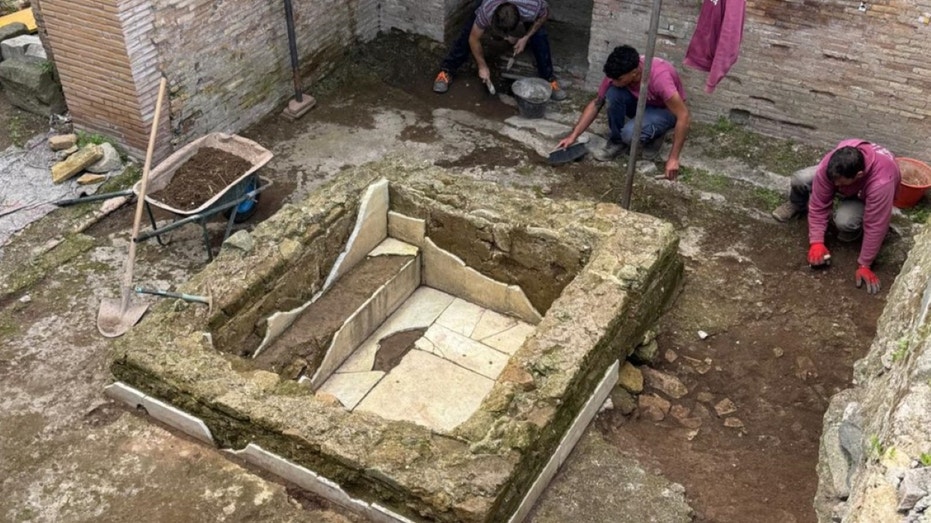Archaeologists uncover hidden Christian church within Ancient Roman bathhouse
Italian archaeologists recently made a surprising religious discovery in an unusual location: an Ancient Roman bath complex.The Appian Way Regional Park, an urban park in Rome, announced the discovery in a Facebook post earlier in May. Officials said the discovery was made at the Triton Baths, located within the Villa of Sette Bassi.Historians found that, in ancient times, the complex was "transformed" into a church.ARCHAEOLOGISTS MAKE GRIM DISCOVERY AFTER FINDING ANCIENT ROMAN BUILDINGS"[It] contained a marble-lined basin, interpreted as an ancient baptistery," said the post, which was translated from Italian to English.The baths date back to the second century A.D. Though the park did not specify what year the church was developed, scholars generally say that Late Antiquity occurred between the third and sixth centuries.Bathhouses were a significant part of daily life in Ancient Rome and Greece, where they were considered social settings for both military personnel and civilians.Some lavish complexes also included exercise facilities and heated rooms for relaxation, resembling modern gyms.ANCIENT JEWISH RITUAL BATH, OLDEST OF ITS KIND IN EUROPE, UNCOVERED BY ARCHAEOLOGISTSBy studying the basin at the Triton Baths, archaeologists were able to determine how the Ancient Roman complex was transformed into a baptismal setting."The basin shows two renovations: a first deeper basin followed by a second phase in which the bottom was raised," the announcement noted."The rite of baptism, which in larger basins involved a full immersion of the believer, represented especially in earlier times the most important sacrament for adhering to the new religion."Appian Way Regional Park said archaeologists "are likely facing a baptismal church, with burial rights."For more Lifestyle articles, visit foxnews.com/lifestyle"The presence of a bishop's seat in the heart of the Roman countryside could explain the presence of the numerous burials identified," the statement added.The park also called the find "a key element for understanding Late Antiquity in Rome.""[This is] a discovery that opens new scenarios on the Christianization of the territory near Rome," the post added."The studies are just beginning, but the significance of the discovery is truly great!"CLICK HERE TO SIGN UP FOR OUR LIFESTYLE NEWSLETTERAppian Way Regional Park is no stranger to historical discoveries.Earlier this spring, the park shared another ancient find while excavating a Catholic church on its premises: the head of an ancient deity.The head was found while excavators worked at the Basilica of St. Stephen on Caelian Hill, a fifth-century church.CLICK HERE TO GET THE FOX NEWS APPIt was discovered in the foundation of the church, and may have been intentionally buried as a way for Christians to disavow polytheism."The research results will contribute not only to the specific knowledge of the artifact but also to the enrichment of the historical-artistic framework of the Appia Antica territory in the late antique period providing new elements for understanding the cultural and settlement dynamics of the era," the park said at the time.




